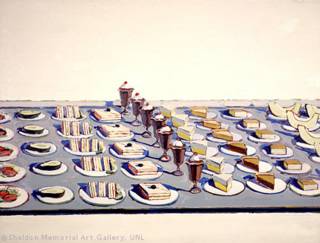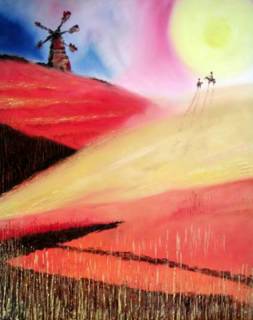Splendor in the Can

Snow Monkeys at Play in Autum by Minol Araki 
“And this is because, today, I hurt with the mystery.”
Kenny Goldsmith, at least, is in the trying. As a professor of “Uncreative Writing” at
So how do you teach students to be uncreative and unoriginal in the contemporary way. Believe it or not such undertaking requires un-imagination. One way, why didn’t I think of it myself, is to have students watch Andy Warhol’s “Blowjob”—a film where only a man’s face in situ fellatio appears ripe and full of expression for thirty-five minutes—while the students churn away notes to later hand in as assignments. Talk about walking and chewing gum at the same time! (Goes to show you my own limitations: I’d have the students look at a can of Campbell’s Soup—all that red splendor—and have them write poetic recipes as an assignment. I’d give an A+ to any manuscript entitled “Splendor in the Can”).
Let’s face it, Goldsmith is right. We gotta teach kids to be unoriginal and uncreative. The contrary has already given wings to Goldsmith’s hypothesis. We must forever foster that inward, unconscious human ability to go beyond the boundaries of zero imagination. Nay! to the pundits. Who ever said originality cannot be taught? Question is: can it ever be learned?
Why should Ron Silliman, of all people, be suspicious of Goldsmith’s “uncreative position”. C’mon, Ron, it must be a question of your age. And, yes, as those thieving students at








